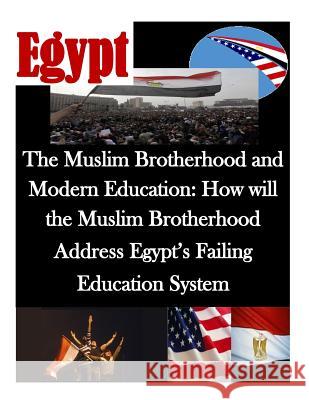The Muslim Brotherhood and Modern Education: How will the Muslim Brotherhood Address Egypt's Failing Education System » książka
The Muslim Brotherhood and Modern Education: How will the Muslim Brotherhood Address Egypt's Failing Education System
ISBN-13: 9781500534929 / Angielski / Miękka / 2014 / 108 str.
The Muslim Brotherhood and Modern Education: How will the Muslim Brotherhood Address Egypt's Failing Education System
ISBN-13: 9781500534929 / Angielski / Miękka / 2014 / 108 str.
(netto: 43,04 VAT: 5%)
Najniższa cena z 30 dni: 42,67 zł
ok. 13-18 dni roboczych.
Darmowa dostawa!
The education system of Egypt has always reflected the type of society and national identity the political leadership wanted to establish. Every time a change in political leadership has occurred, a corresponding shift also occurred in the education policy and its structure. This thesis attempts to determine if another shift in the education system will occur now that the Muslim Brotherhood has gained power in the Egyptian government. This paper establishes many truths about the way the Muslim Brotherhood will precede now that it has significant control over the Egyptian education system. First, the education system in Egypt is in dire need of reform to increase equality among rich and poor and to improve the overall quality of the system. Second, the Muslim Brotherhood intends to reform the education system primarily to improve the effectiveness of the system and increase access to people of all levels of income. In addition, the Muslim Brotherhood hopes to increase religious instruction, but that is not its primary goal. Third, the Muslim Brotherhood cannot act unilaterally in changing the education system and instead must work with the Egyptian military, other political groups and the United States. The last important aspect established is that education is not the priority of the new government because other issues, such as security and revitalizing the economy, are considered more important. It is, therefore, most likely that the Muslim Brotherhood will proceed with incremental changes to the education system in the near future. Although education will not be a priority, the Muslim Brotherhood will take small steps to improve the quality of the education system. As in Turkey, once the Muslim Brotherhood has solidified its position in the government, it may proceed to increase Islamic instruction. Even if religious instruction is increased, it will be a moderate version of Islam and not inhibit the teaching of secular subjects.











